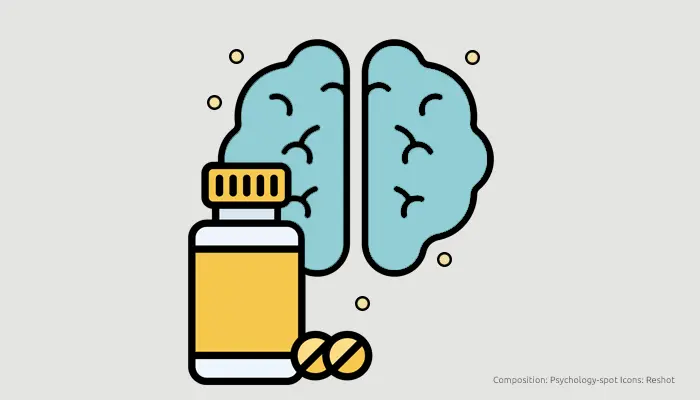
Our memory makes us who we are. It treasures our biography, reminds us of our achievements and mistakes, keeps our bonds alive, and evokes the things we love and fight for. Our memories are part of our identity: they allow us to preserve our essence and at the same time project ourselves into the future.
For that reason, memory loss can lead to loss of self. When memories fade or the ability to form new memories is impaired, everyday life becomes increasingly confusing and complicated. Therefore, it is understandable that we worry about improving concentration and memory, so that we can reach the old age in good cognitive shape.
How to improve memory and concentration? Researchers at the National Center for Neurological Disorders in Beijing followed more than 29,000 people without dementia with an average age of 72 for a decade and found that eating a healthy diet, staying mentally active, exercising and nurturing social relationships were habits essential to protect memory.
Diet is particularly important because the process that transforms learned information into long-term memories, known as memory consolidation, involves a series of molecular, cellular, and structural changes involving different neurotransmitters, the production of which essentially depends on what we eat.
How to improve memory and concentration naturally?
1. Polyphenols, the essential antioxidant
Polyphenols are naturally occurring substances synthesized by plants as a product of their metabolism and contribute to improving memory and concentration. Present in foods such as cocoa, black and green teas, as well as legumes and nuts, their power lies in their antioxidant properties.
In fact, our brain is particularly vulnerable to oxidative stress, which can lead to neurodegeneration. Thanks to their antioxidant and anti-inflammatory effects, polyphenols protect us from oxidative damage by eliminating free radicals and deactivating the metals that “feed” this process.
Polyphenols can also activate antioxidant enzymes and even repair nerve cell membranes that have suffered oxidative damage, a study conducted at the University of New Mexico revealed. Therefore, it is not surprising that the inclusion of polyphenols in the diet has been related to a better cognitive evolution over the years and a better conservation of verbal memory.
2. Vitamins, the great allies of memory
Vitamins are also essential for cognitive functioning, especially vitamins A, C and E, which protect spatial memory. In fact, its consumption has been associated with better cognitive health and stronger memory, especially free recall.
Vitamins A, C and group B and E act as antioxidants by eliminating free radicals and preventing oxidative stress. Vitamin C, in particular, is found in high concentrations in the brain, where it promotes neuronal, vascular and different neurotransmitter function.
On the other hand, the decrease in the levels of vitamin B12, B6 and folate has been related to cognitive deterioration, which is why increasing its consumption is beneficial for improving memory and concentration.
3. Omega-3 polyunsaturated fatty acids, vital for brain function
Omega-3 fatty acids are essential for neural function and play a leading role as energy substrate and cell membrane components, thus contributing to cognition, learning and memory, especially relational memory, which is directly dependent on hippocampal activity.
These fatty acids protect the brain from oxidative stress, inflammation and apoptosis (cell death) while mitigating the activity of neurotrophic factors, according to research carried out at the University of Regensburg. They keep neuroinflammation at bay and mitigate the process of neuronal death, which is why they are essential for the function and integrity of nerve cells.
Omega-3 fatty acids, particularly docosahexaenoic acid (DHA), improve synaptic plasticity, membrane fluidity, and neuronal metabolism, and are essential for preserving the health of aging neurons. In fact, DHA can change the expression of genes that regulate neurogenesis and neuronal function, so if we want to improve memory, we should include foods like oily fish and shellfish in our diet.
4. Zinc, the memory superstar
Another essential nutrient for improving memory and concentration is zinc. This element is essential for the formation of synapses, the nerve connections that are at the base of memories, and is involved in the structural plasticity, which is the ability of the brain to change its physical structure as a result of learning.
Zinc is essential for cognitive development, since it is involved in neuronal migration and regulates neurogenesis and cell differentiation. It also mediates neurotransmission processes to facilitate the formation of memories or their activation. That is, it helps us consolidate memories and bring them to mind. Indeed, zinc modulates hippocampal activity in memory. It is not by chance that there is a high concentration of zinc ions in the hippocampus.
Deficiencies in this mineral have been linked to attention problems and stress, two factors that often affect memory. Instead, it has been appreciated that a diet rich in zinc, with foods such as red meat, nuts and dairy products, improves learning and different types of memory, from spatial to working or recognition.
5. Choline, the nutrient that the brain needs
Acetylcholine is probably one of the most studied neuromodulators in the field of memory. It is a versatile molecule that acts both as a neurotransmitter and a neuromodulator in the nervous system, being essential for the formation of memories.
In fact, a large number of cholinergic neurons are concentrated in the hippocampus, which are fundamentally involved in the formation of episodic memory, which is what allows us to clearly evoke episodes of our lives, and semantic memory, which stores the characteristics and attributes that define the concepts with which we operate. For this reason, it is not surprising that in dementias such as Alzheimer’s disease, the cholinergic system is affected.
Choline is the precursor to acetylcholine and is found in high concentrations in foods such as eggs, meat, and cruciferous vegetables. A study conducted at Boston University found that choline intake as part of the diet was associated with better cognitive performance and memory preservation. Unfortunately, most people do not get enough choline through their diet.
If, for any reason, we cannot achieve an adequate intake of these nutrients through food, another possibility is to resort to supplements for memory and concentration, many of which not only “feed” our neurons, but also promote connections, so to provide more mental clarity, improve blood circulation and concentration.
Sources:
Jia, J. et. Al. (2023) Association between healthy lifestyle and memory decline in older adults: 10 year, population based, prospective cohort study. BMJ; 380: e072691.
Madireddy, S. (2021) Most Effective Combination of Nutraceuticals for Improved Memory and Cognitive Performance in the House Cricket, Acheta domesticus. Nutrients; 13(2): 362.
Lange, K. W. et. Al. (2019) Diet and medical foods in Parkinson’s disease. Food Science and Human Wellness; 8(2): 83-95.
Thapa, A. & Carroll, N. J. (2017) Dietary Modulation of Oxidative Stress in Alzheimer’s Disease. Int J Mol Sci; 18(7): 1583.
Haam, J. & Yakel, J. L. (2017) Cholinergic modulation of the hippocampal region and memory function. J Neurochem; 142(Suppl 2): 111–121.
Stern, S. A. & Alberini, C. M. (2013) Mechanisms of Memory Enhancement. Wiley Interdiscip Rev Syst Biol Med; 5(1): 37–53.
Poly, C. et. Al. (2011) The relation of dietary choline to cognitive performance and white-matter hyperintensity in the Framingham Offspring Cohort. Am J Clin Nutr; 94(6): 1584-1591.



